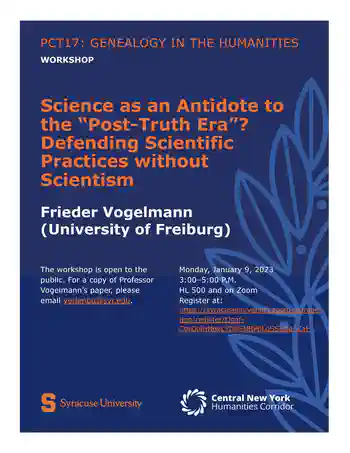
Science as an Antidote to the “Post-Truth Era”? Defending Scientific Practices without Scientism
Zusammenfassung
The popular diagnosis that we are living in a “post-truth era” responds to the rise of open falsehoods, outright lies and hostility towards the sciences and humanities in politics. It typically includes three claims: a historical diagnosis that we are witnessing an unprecedented quantity and a new quality of untruth in politics; an explanation for this rise of untruth; and political advice how to react to it. In the talk, I argue that, on the one hand, all three parts of the diagnosis of a “post-truth era” are problematic.
Historically, it is unclear when the age of honesty, rationality or truth in politics ended and the “post-truth era” began. Explanations of the supposed rupture by reference to stirred emotions, stout ignorance or missing trust in experts face empirical and conceptual objections. Thus, the political strategies against “post-truth politics” not only miss their mark but also frequently advocate a mix of scientism and post-democracy.
On the other hand, the diagnosis of a “post-truth era” is correct in one respect: We have troubles with the relationship between truth and politics. Yet unless we conceptualise it differently, we are bound to misunderstand the role of scientific knowledge in democratic practices. We must avoid putting scientific knowledge on a sovereign epistemic standpoint divorced from politics and still be able to defend the epistemic authority of scientific practices. A non-sovereign conception of truth can help us with this task.
NY 13244 Syracuse